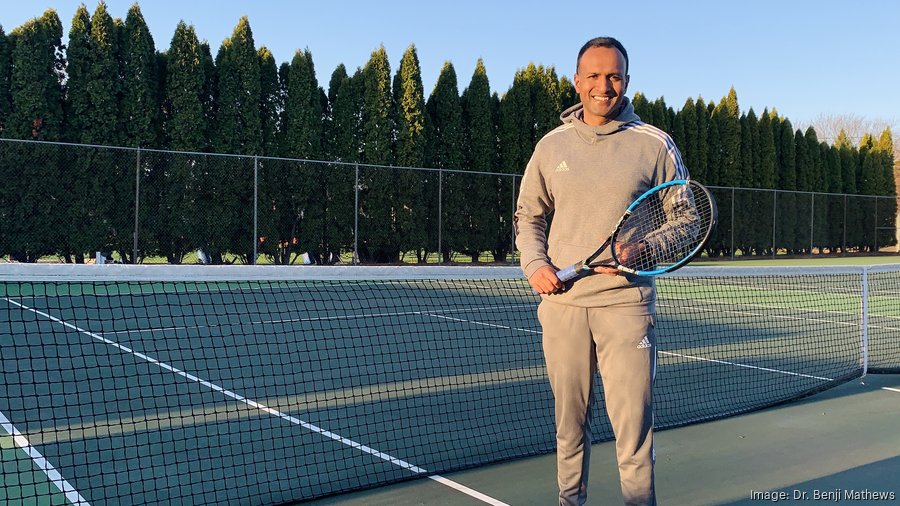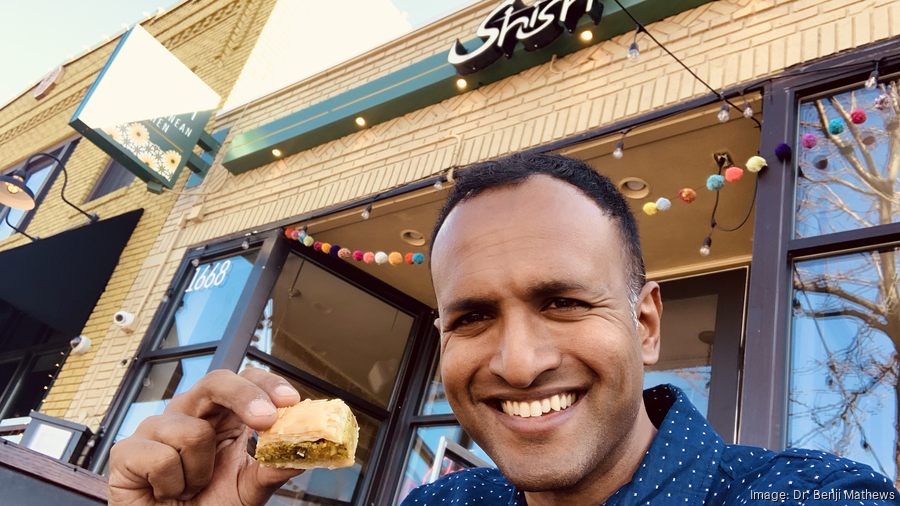As head of the Department of Hospital Medicine at Regions Hospital, 39-year-old Dr. Benji Mathews has already had a considerable impact on HealthPartners Inc., its patients and his fellow physicians. He combines leadership and vision with a drive to expand knowledge and opportunity for all.
When Covid-19 hit, Mathews was tapped as lead physician on all operations related to the pandemic in the hospital medicine department at Regions, including determining staffing levels in the intensive care unit.
At the same time, he made another pandemic pivot while leading preparations for the Society of Hospital Medicine’s national meeting, by turning the convention into a virtual gathering for 20,000 attendees. His work with the society is also notable for his efforts to create an educational platform that addresses health equity and antiracism work.
Although he’s already an accomplished physician, educator and mentor, Mathews also obtained an MBA from the University of St. Thomas, to continue creating meaningful change across the health care field.
More from our honoree …
Why do you do what you do? The word vocation comes to mind. It is from the Latin word vocare — “to call.” A job is a vocation only if someone calls you to do it and you do it for others rather than for yourself. By thinking of why I do what I do as a vocation, it reimagines my roles as a mission of service to something beyond merely my own interests. It's part of my personal vocation, providing me a greater meaning and purpose in how I go about the things I do. It is an opportunity to really to serve, walk alongside, pour into and develop others, inspiring creativity and teamwork.
If why I do what I do is thought as a job, I’m just clocking in and out and it’s mostly about me. Even if the why is because it is from a career lens, I’m working with an improved sense of contribution, but it’s still about me. However, when I reimagine my why as a vocation, I have the freedom and desire to go all in for the sake of others and in the end there is personal satisfaction, fulfillment and joy from that (even if the latter is not the primary goal). I’m not perfect at owning it like that but that is a mantra to think of my why as a vocation.
What's been your biggest professional accomplishment? Leading a team of 100 physicians and advance practice clinicians through the pandemic. I was tapped as the lead physician on all operations related to Covid-19 in the hospital medicine department at Regions Hospital, including staffing in the ICU and collaborating on organizationwide decisions through the centralized Incident Command. Adapting, innovating and especially communicating was important. Communication and information was especially valuable during this crisis. I led over 80 department huddles that gave us all the power of knowing we had shared information and a common operating picture. The huddles gave us strength, ability to check in on each other and build our team.
Looking back at the challenges and turmoil of the past year, what was a bright spot? Our team was a huge bright spot. I am grateful for them going above and beyond, caring for each other, covering extra shifts, participating in new working groups and task forces, and sacrificing their personal safety while taking care of very ill Covid-19 patients.

What was a key takeaway from the year that will guide your perspective and/or actions going forward? Staying hopeful, deliberately fostering gratitude by sincerely and frequently expressing appreciation. Gratitude supports resiliency. I believe gratitude builds hope personally and promotes a positive community and connections.
To actively foster gratitude, I have in this pandemic (and hope to beyond!) had a practice of starting each week writing a group of texts, emails or quick notes to people appreciating them. Sometimes I’ve done it daily during the height of the pandemic surge. Often this leads to a conversation, phone call or virtual visit as a follow up. The cadence of showing gratitude doesn’t matter as much as the intentionality and frequency.
Fast facts
Head of the Department of Hospital Medicine at Regions Hospital, HealthPartners Inc.
Age: 39
Education: Bachelor of Science, University of Minnesota Institute of Technology; M.D., residency program and chief residency, University of Minnesota Medical School; Fellowship in Diagnostic Patient Safety Health Care, Society to Improve Diagnosis in Medicine; MBA, University of St. Thomas Opus College of Business
Family: Wife and four children
Board memberships and volunteer activities: Society of Hospital Medicine, National Conference Annual Meeting Committee; American College of Physicians; Society to Improve Diagnosis in Medicine; community education volunteering in the pandemic, including media interviews, articles, speaking at community events and on webinars about Covid-19, vaccinations, health equity and telemedicine


